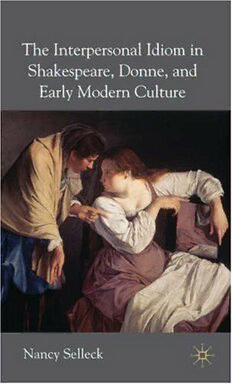
The Interpersonal Idiom in Shakespeare, Donne and Early Modern Culture PDF
225 Pages·2008·0.633 MB·English
Most books are stored in the elastic cloud where traffic is expensive. For this reason, we have a limit on daily download.
Preview The Interpersonal Idiom in Shakespeare, Donne and Early Modern Culture
Description:
Sixteenth-century English speakers understood identity in radically different terms than ours. The Interpersonal Idiom explores the ways early modern usage figures selves as a function of other selves, particularly in the tropes of humoralism, visual perception, and sexual constancy. Challenging the current critical preoccupation with subjectivity, Selleck argues that Shakespeare, Donne, and other early modern writers often emphatically resist emerging conventions of subjective authority and cast selfhood instead as the experience of others. Analyzing a diverse range of texts — from treatises on medicine, faculty psychology, and the controversy over women to drama, poetry, and devotional literature — Selleck’s study proposes a new theoretical understanding of identity in early modern culture.
See more
The list of books you might like
Most books are stored in the elastic cloud where traffic is expensive. For this reason, we have a limit on daily download.
